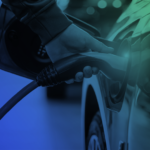eSigning on the Bottom Line: The Digital Shift in Automotive Transactions
by Alan H. Bird
Attending the recent TalkAuto conference, it was clear that the automotive industry is at a crossroads in embracing digital transformation. Among the many innovations discussed, eSignatures emerged as a hot topic, igniting both enthusiasm and concern. While many acknowledged the potential for streamlined operations and enhanced customer experiences, concerns around cybersecurity, regulatory compliance, and adapting to new systems were evident. These reservations are valid, yet the overwhelming advantages of eSignatures—efficiency, convenience, and cost savings—demonstrate how they can address these challenges and redefine how our industry operates in an increasingly digital world.
eSignatures have promise to bring several advantages to the automotive industry, which typically outweigh the potential drawbacks. Primarily, eSignatures streamline processes; they eliminate the need for physical paperwork and speed up contract completion. Customers can sign documents remotely, reducing time spent at Dealerships and accelerating the overall sales cycle. And while implementing eSignature software and integrating it with existing systems requires an upfront investment in technology, training, and infrastructure, those are short term costs for long term gains.
The potential cybersecurity threat around the use of eSignature technology is what seemed to emerge from the TalkAuto conversations. Though eSignature platforms are generally secure, they could be targeted by cyberattacks, leading to potential data breaches or fraud. But in today’s hyper-connected tech-forward world, everything is at risk. Many would argue that eSignatures deliver an improved level of security and compliance with advanced encryption to protect against unauthorized alterations and audit trails that employ timestamps to aid with compliance regulations.
There is no doubt that some Dealers and customers may be hesitant to adopt new digital processes due to lack of familiarity or trust in technology. There are risks of downtime, connectivity problems, or software glitches which can delay processes, especially in environments with inconsistent internet access. But consider the costs savings and environmental benefits; less paper, printing, and mailing translates to significant savings for dealerships and manufacturers, and automation reduces the manual effort required for handling, storing, and retrieving documents and lowers administrative overhead. Additionally, a reduction on the industry’s reliance on paper contributes to sustainability goals, aligning with the growing focus on eco-friendly practices.
eSignature technology brings with it a level of convenience for the consumer that is commonplace in many other industries – healthcare, real estate, government services – where it has already been widely embraced. Honestly, when’s the last time you physically signed your tax return? Suffice to say, eSignature technology will have a big influence on improving the automotive customer’s experience. It will allow them to review and sign documents at their convenience from any location using a device with internet access. Most won’t shy away from using it.
While the transition to eSignatures might present initial hurdles, their long-term benefits in cost, speed, customer satisfaction, and compliance make them a valuable tool in modernizing the automotive industry. Like other industries, it really is only a matter of time.




